AI, shifting employee expectations, and the transition to human-centric organizational models were key trends at Cielo’s global TA roundtable events in India and Singapore. These discussions show that future success hinges not just on innovative ideas but also on the intersection of analytical and collaborative thinking – a hallmark of the roundtable series.
Stay ahead of talent acquisition challenges in APAC with these insights from the events:
1. The rise of digitization and generative AI
AI presents a huge opportunity for talent sourcing, but its integration into HR functions goes beyond mere efficiency gains. Andy Curlewis, Senior Vice President at Cielo, stressed the importance of a strategic approach in his Vision 2030 AI session, highlighting that organizations must not only embrace AI but also encourage a culture prioritizing adaptability and continuous learning.
Nishit Bansal, Head of Talent at TATA Consumer, underscored the disconnect between aspiration and execution. While 56% of HR professionals express interest in adopting technology, fewer than 20% have initiated the process, with only 10% making substantial progress. This disparity highlights a critical challenge: organizations must bridge the skills gap and address “technostress” as they incorporate AI.
The 2024 Pluralsight AI skills report reveals that 70% of workers will need to upgrade their AI skills, exposing a 50% global hiring gap for AI-related roles. As companies move forward, ensuring that AI empowers employees rather than overwhelming them will be crucial for success.
Generative AI's rapid adoption is record-breaking
ChatGPT reached 100 million users in only two months
It is hard to escape the hype around this. Never has a technology captured the imagination of so many, so quickly. ChatGPT acquired it's first million users in just five days after launch. That turned to 100 million in two months.
For context, TikTok took nine months to achieve the same level of usage.
2. Purpose-driven organizations and the shift to “humanocracy”
The shift toward human-centric, purpose-driven organizations was a recurring theme at both events. Prabir Jha, Founder and CEO of Prabir JHA People Advisory, emphasized the need for companies to move away from bureaucratic systems that stifle innovation. "Legacy systems must give way to ‘humanocracy’," Jha noted, advocating for an approach where employees are empowered with more agency.
In a keynote address at the Singapore roundtable, Dr. Sandhya Karpe, leader of the Asia Human Capital Centre at The Conference Board, discussed the importance of creating flexible work environments that promote creativity, problem-solving, and employee wellbeing. In many organizations in Asia, where a culture of long working hours adds stress, leaders must address employee wellbeing holistically – considering physical, mental, and social health – to build resilient, future-ready workforces. By reducing over-reliance on controls and rules, companies can foster adaptability, upskilling, and internal mobility.
Participants also highlighted leadership's role in driving this shift, with one attendee asking: “If we bring AI in now, what impact will it have on future generations?” This reflects the need for leaders to commit to balancing human skills with technological advancements.
3. The importance of upskilling and job satisfaction
Across APAC, skill-building is a defining factor for whether people stay with their current employer or pursue new opportunities. As a result, nearly half of employees prioritize roles with the possibility of upskilling. Those considering a new employer are especially likely to value learning opportunities, indicating the importance of future-readiness.

Respondents were almost twice as likely to be influenced to change employer within 12 months if offered new skills training. Source: PwC’s Global Workforce Hopes & Fears Survey 2024
According to PwC’s Global Workforce Hopes & Fears Survey 2024, job satisfaction across APAC has generally improved. Over 61% of employees now express satisfaction, a 5% increase from the previous year and aligning with global trends. However, this rise in satisfaction doesn’t necessarily equate to retention. Nearly 31% of workers in APAC are likely to seek new opportunities in the coming year, surpassing levels seen during the great resignation (19%). Notably, Gen Z workers are particularly restless, with 42% considering a job change, compared to 23% of Gen X.

Most Asia Pacific countries shown experienced a growth in job satisfaction between 2023 and 2024. Source: PwC’s Asia Pacific Workforce Hopes and Fears Survey 2024
Job satisfaction varies widely by country and industry, with high rates reported in the Chinese Mainland and Indonesia (over 70%) and lower levels in South Korea, Japan, and Taiwan. Industries also show disparity: technology, media, and telecommunications workers feel the most fulfilled (69%), while the health sector reports the lowest satisfaction (51%).
These insights show the need for organizations to proactively implement upskilling and reskilling programs to meet employee expectations and adapt to changing job requirements. As Prabir Jha noted, “Without the ability to turn an idea into reality, ideas hold little value.”
4. DEI: A global and generational priority
Diversity, equity, and inclusion (DEI) remains a top concern for talent leaders in Asia. The roundtables revealed that gender diversity, generational diversity, and intersectionality are key talent sourcing challenges for organizations across the region. As APAC’s workforce ages – with 1 in 4 people expected to be over 60 by 2050 – companies must rethink their approach to creating a multigenerational workforce.
In Singapore, the conversation shifted to addressing age biases and creating inclusive environments for all, including through reverse mentoring, cross-generational mentoring, and age-bias training. These efforts aim to align DEI strategies with business objectives to produce measurable outcomes.
5. Building the organizations of tomorrow
A key focus was the critical role of leadership and culture in shaping future-ready organizations. In India, Prabir Jha stressed the importance of mastering the interplay between talent, culture, leadership and technology. "It doesn’t matter what your business is; you are in the people business," he stated, underscoring that leadership today is about influence and building followership rather than giving instructions.
Jha emphasized that great leadership is cultivated through continuous work in three areas: reputation, courage and curiosity. "It exasperates me when I hear C-suite executives ask, ‘Who else in my industry is doing it?’" he remarked, questioning why senior leaders hesitate to think and act differently. "Why do so many just want to be followers, not leaders? Is playing safe actually a smart strategy?”
He spoke candidly about the rise of toxic workplaces and the need for organizations to foster psychological safety. Without addressing upstream cultural issues, no amount of downstream intervention will prevent burnout, distrust and disengagement. Leadership, he concluded, is about having the courage to move beyond the safe, the average, and the familiar, and to foster an environment where innovation and debate thrive.
The insights from attendees highlighted the importance of leadership buy-in for cultural transformation. Gaurav Shukla, Director of Human Resources South Asia & ASEAN at Ferring, highlighted that technology alone isn’t the issue. "It’s not a technology problem; it’s a mindset problem ... Do we have the courage to push forward, and does the board have the courage to embrace this change?" He emphasized that organizations often focus on leadership pipelines and product development but overlook technology's role in long-term goals. To enact real, positive change, senior leaders should champion bold, future-oriented strategies.
A meeting of minds: APAC talent sourcing insights
From the rise of AI and hybrid work to the need for purpose-driven leadership and renewed focus on DEI, the discussions underscored the importance of adaptability, upskilling, and creating human-centric organizations. Talent leaders who embrace these trends will be well-positioned to navigate future challenges and build resilient workforces.
As Molly Thiel, Cielo’s Chief Operating Officer, aptly stated: “The intersection of analytical and collaborative thinking is what we did today and how we progress and push the envelope on what it means to be in the talent profession.”
The future of TA lies not only in innovative ideas but in collaborative execution within a supportive framework where everyone can shine.
About the experts
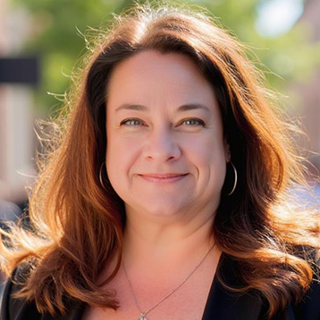
Chief Operating Officer, Cielo
As Chief Operating Officer, Molly enables Cielo’s mission by ensuring we have the best talent positioned to provide excellent client service. She oversees talent acquisition, talent management, learning & development and HR operations for Cielo’s global operations.
LinkedIn connect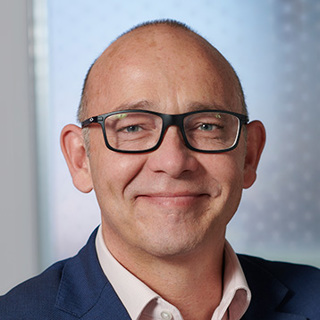
Senior Vice President – Product, Cielo
LinkedIn connect
Leader of the Asia Human Capital Centre, The Conference Board
LinkedIn connect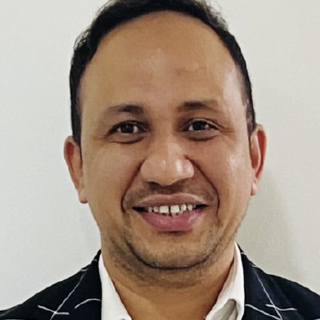
Director of Human Resources South Asia & ASEAN, Ferring
LinkedIn connect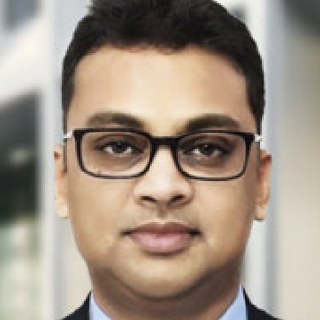
Head of Talent, TATA Consumer
LinkedIn connect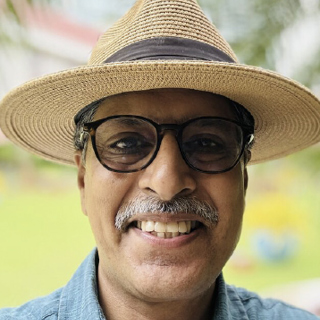
Founder and CEO, Prabir JHA People Advisory
LinkedIn connect







